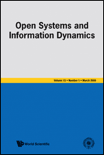
OPEN SYSTEMS & INFORMATION DYNAMICS
Scope & Guideline
Fostering Innovation in Computational Sciences and Beyond.
Introduction
Aims and Scopes
- Open Quantum Systems:
The primary focus is on the dynamics of open quantum systems, which are systems that interact with their environment, leading to phenomena such as decoherence and dissipation. - Quantum Information Theory:
Research in this area examines how information is processed and transmitted in quantum systems, including topics like quantum channels, entanglement, and quantum communication. - Thermodynamics of Quantum Systems:
This encompasses studies on the thermodynamic properties and behaviors of quantum systems, particularly in relation to non-equilibrium processes and quantum statistical mechanics. - Mathematical Foundations of Quantum Dynamics:
The journal publishes research that delves into the mathematical structures underlying quantum dynamics, including semigroups, Markov processes, and operator theory. - Applications in Quantum Technology:
There is a growing emphasis on practical applications of theoretical findings, particularly in quantum computing and quantum information technologies.
Trending and Emerging
- Quantum Entanglement and Correlations:
There is an increasing interest in the role of entanglement and correlations in open quantum systems, particularly how they affect dynamics and information transfer. - Noise and Decoherence Studies:
Research examining the effects of noise and decoherence on quantum systems is gaining traction, particularly in the context of quantum computing and information processing. - Quantum Feedback and Control:
Emerging themes include the development of feedback mechanisms and control strategies for managing open quantum systems, which are critical for practical applications in quantum technologies. - Interdisciplinary Applications:
The journal is increasingly publishing interdisciplinary research that connects quantum systems with fields such as psychology and classical thermodynamics, emphasizing the versatility of quantum dynamics. - Advanced Mathematical Techniques:
There is a trend towards utilizing advanced mathematical approaches, including geometric and algebraic methods, to understand complex quantum dynamics and systems.
Declining or Waning
- Classical Information Dynamics:
Research that primarily focuses on classical information theory and its applications in quantum contexts seems to be declining, as the journal increasingly emphasizes purely quantum mechanical frameworks. - Static Quantum Systems:
Studies on static or closed quantum systems, which do not account for environmental interactions, are appearing less frequently as the field moves towards a more dynamic and interaction-focused perspective. - Historical Perspectives on Quantum Mechanics:
Papers that explore historical or philosophical discussions around quantum mechanics are becoming less common, as the journal shifts towards more empirical and applied research themes. - Basic Quantum Mechanics:
Fundamental introductory discussions of quantum mechanics, which may not directly relate to open systems or information dynamics, are being overshadowed by more complex and specialized studies.
Similar Journals
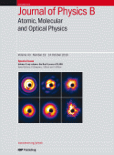
JOURNAL OF PHYSICS B-ATOMIC MOLECULAR AND OPTICAL PHYSICS
Unraveling the Mysteries of Light and MatterJOURNAL OF PHYSICS B-ATOMIC MOLECULAR AND OPTICAL PHYSICS, published by IOP Publishing Ltd, stands as a key platform within the fields of atomic, molecular, and optical physics. With an impressive history spanning from 1988 to 2024, this journal is recognized for its high-quality research contributions, holding a Q2 ranking in both Atomic and Molecular Physics and Optics, and Condensed Matter Physics, as of 2023. While not an open-access journal, it continues to attract a broad readership and submissions due to its commitment to disseminating knowledge that is at the forefront of contemporary physics research. The journal's ISSN 0953-4075 and E-ISSN 1361-6455 signal its accessibility and relevance in academic discourse. As researchers, professionals, and students delve into the intricate phenomena of quantum mechanics and photonics, they will find pivotal studies and insights within these pages, reinforcing JOURNAL OF PHYSICS B's stature as an esteemed resource in the ever-evolving landscape of physics.

Physical Review Research
Bridging ideas and innovation in physics and astronomy.Physical Review Research, published by the American Physical Society, is a premier open access journal dedicated to the dissemination of high-quality research across all areas of physics and astronomy. Since its inception in 2019, this journal has quickly established itself as a vital platform for researchers, achieving a prestigious Q1 ranking in the dynamics of Physics and Astronomy (miscellaneous) and holding a commendable position in the Scopus Rankings with a rank of #29 out of 243, placing it in the 88th percentile. With the commitment to fostering scientific collaboration and transparency, Physical Review Research offers unrestricted access to valuable findings, enabling researchers, professionals, and students alike to engage with cutting-edge contributions in general physics and astronomy. As it converges into its forthcoming years of publication, the journal remains dedicated to showcasing rigorous research and innovative ideas that drive the field forward.
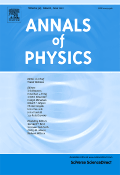
Annals of Physics
Connecting scholars to the latest breakthroughs in Physics.Annals of Physics is a premier journal published by Academic Press Inc Elsevier Science, specializing in the expansive field of Physics and Astronomy. Since its inception in 1957, this journal has played a pivotal role in disseminating high-quality research and advancements across various sub-disciplines of physics. With a notable impact factor making it rank in the Q1 category for 2023, it stands among the top tier of scholarly publications, specifically sitting at Rank #63 out of 243 in the field, placing it in the 74th percentile according to Scopus metrics. Researchers are encouraged to submit their findings to reach a broad audience without the constraints of Open Access fees, promoting extensive visibility within the academic community. As we look ahead to 2024, Annals of Physics continues to be an essential resource for professionals, students, and academics striving to advance the frontiers of knowledge in physics and astronomy.

PRX Quantum
Unlocking the potential of quantum science.PRX Quantum is a premier open-access journal published by the American Physical Society, dedicated to advancing the field of quantum studies. Launched in 2020, this journal serves as a vital platform for the dissemination of high-quality research across a diverse range of interconnected disciplines, including applied mathematics, computer science, and electronic engineering, as evidenced by its impressive rankings in the 2023 Scopus categories. With a remarkable impact factor and holding a top quartile position in multiple areas, PRX Quantum is not only pivotal for researchers engaged in quantum physics and related areas but also for professionals and students seeking to stay at the forefront of quantum technology and material science. Additionally, as an open-access journal, it champions the free distribution of knowledge, allowing for wider accessibility and engagement within the global research community. With a commitment to nurturing innovation and interdisciplinary collaboration, PRX Quantum is an indispensable resource for anyone interested in the evolving landscape of quantum science.

Quantum
Connecting scholars to the pulse of quantum advancements.Quantum, an esteemed Open Access journal published by the Verein Förderung Open Access Publizierens Quantenwissenschaft, serves as a pivotal platform for the dissemination of groundbreaking research in the fields of atomic and molecular physics, and optics. Since its inception in 2017, Quantum has emerged as a leader in the academic community, boasting an impressive impact factor within the top quartile (Q1) in its categories, ranking #6 out of 81 in Physics and Astronomy (miscellaneous) and #35 out of 224 in Atomic and Molecular Physics, and Optics in 2023. With its global reach, based in Vienna, Austria, Quantum is dedicated to promoting innovative research and fostering collaboration among scientists, researchers, and students alike. The journal encourages unrestricted access to high-quality publications, ensuring that vital advancements in quantum science are available to all, thereby facilitating knowledge exchange and accelerating scientific progress. Explore the cutting-edge developments at the forefront of quantum studies and contribute to a vibrant scholarly community.

JOURNAL OF EXPERIMENTAL AND THEORETICAL PHYSICS
Unveiling the Mysteries of the Physical UniverseJournal of Experimental and Theoretical Physics is a distinguished publication in the field of physics, dedicated to disseminating pioneering research and fostering intellectual discourse in both experimental and theoretical domains. Published by Pleiades Publishing Inc, this journal has established itself as a crucial platform for physicists, with a commendable Q3 categorization in the 2023 rankings within Physics and Astronomy, illustrating its impactful contributions to the discipline. The journal features a wide array of articles that delve into the intricacies of physical theory, experimental techniques, and applications, making it an invaluable resource for researchers, professionals, and students alike. Although it operates under a traditional access model, its longstanding history, dating back to 1980 and converging years through to 2023, underscores its commitment to advancing the frontiers of physics knowledge. The journal is also notable for its engagement in the scientific community, aiming to bridge the gap between theoretical predictions and experimental validations. As a part of Pleiades Publishing, it continues to uphold rigorous standards of academic excellence, inviting contributions that push the boundaries of current understanding and stimulate further exploration in the fascinating world of physics.

EUROPEAN PHYSICAL JOURNAL B
Championing High-Quality Research for a Global AudienceEUROPEAN PHYSICAL JOURNAL B (ISSN: 1434-6028, E-ISSN: 1434-6036), published by Springer, is a prominent international journal based in Germany that focuses on the fields of Condensed Matter Physics and Electronic, Optical and Magnetic Materials. With a converged publication timeline from 1998 to 2024, it caters to a diverse audience that includes researchers, professionals, and students striving for the latest advancements in these vital areas of physics. The journal is recognized with a Q3 ranking in both relevant categories for 2023, showcasing its solid yet notable standing within the academic community. Although currently without an H-index, its Scopus rankings reflect a percentile performance of 41st and 39th, respectively, indicating a growing influence among its peers. The journal offers open access options, ensuring that groundbreaking research is widely accessible and contributes to the collective knowledge within the scientific domain. By aiming to publish high-quality, well-researched articles, the EUROPEAN PHYSICAL JOURNAL B plays a crucial role in disseminating innovative findings and fostering collaboration in the field of physics.
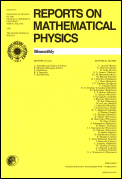
REPORTS ON MATHEMATICAL PHYSICS
Pioneering Discoveries in Mathematical PhysicsREPORTS ON MATHEMATICAL PHYSICS is a distinguished journal published by PERGAMON-ELSEVIER SCIENCE LTD, focusing on the intricate interplay between mathematics and physics. Established in the United Kingdom, this journal has been contributing to the academic community since its inception, publishing significant research findings that explore the theoretical underpinnings of physical phenomena. With an ISSN of 0034-4877 and an E-ISSN of 1879-0674, the journal maintains a consistent publishing history, converging research from 1970 to 2024. It is currently ranked Q3 in both Mathematical Physics and Statistical and Nonlinear Physics categories, reflecting its commitment to maintaining a high standard of scholarly work. Although it lacks Open Access options, its targeted audience of researchers, professionals, and students will find invaluable insights into advanced mathematical methods, statistical applications, and innovative approaches in physics. With its esteemed reputation and critical role in the field, REPORTS ON MATHEMATICAL PHYSICS continues to be an essential resource for those seeking to deepen their understanding of mathematical applications in physical systems.

Frontiers of Physics
Exploring New Horizons in Physics InnovationFrontiers of Physics, published by Higher Education Press, is a premier open-access journal dedicated to fostering innovative research and excellence within the field of physics. With an ISSN of 2095-0462 and an E-ISSN of 2095-0470, this rapidly growing journal has established itself as a valuable platform for disseminating cutting-edge findings, covering a diverse range of topics from theoretical frameworks to experimental advancements. Notably, Frontiers of Physics has achieved an impressive Q1 ranking in the 2023 Scopus Quartiles for Physics and Astronomy, securing a competitive 5th out of 81 positions in its category, reflecting a high impact factor that underscores its importance to the scientific community. Since its inception in 2011 and continuing through 2024, the journal aims to bridge the gap between academia and industry, encouraging collaboration among researchers, professionals, and students alike. Its commitment to open access ensures that high-quality research is readily accessible, thereby promoting knowledge sharing and advancement in the global physics community. Explore the potential of your research in Frontiers of Physics, where the future of physics flourishes.
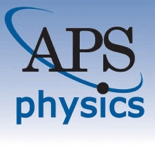
PHYSICAL REVIEW E
Advancing the Frontiers of Physics ResearchPHYSICAL REVIEW E, published by the American Physical Society, stands as a premier journal in the fields of condensed matter physics, statistical and nonlinear physics, and statistics and probability. With an ISSN of 2470-0045 and an E-ISSN of 2470-0053, this journal prides itself on providing cutting-edge research and insights, contributing significantly to the advancement of knowledge since its inception in 1993. Currently, it boasts a Q1 ranking in Condensed Matter Physics and a Q2 ranking in both Statistical and Nonlinear Physics and Statistics and Probability, highlighting its relevance and impact within these fields. PHYSICAL REVIEW E is particularly renowned for its commitment to disseminating high-quality, peer-reviewed articles that address fundamental questions and emergent phenomena, making it an essential resource for researchers, professionals, and students alike. As it converges years from 1993 to 2024, the journal continues to foster a collaborative environment for innovative research while maintaining accessibility for a global audience.